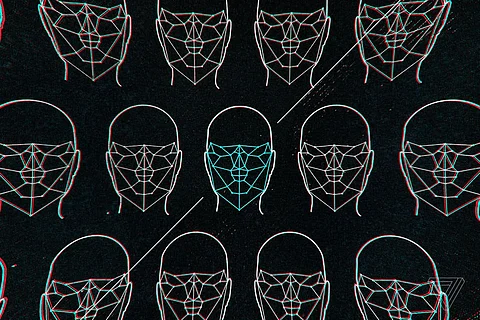

The utilization of artificial intelligence (AI) for image recognition offers incredible potential for business transformation and problem-solving. However, various obligations are joined with that potential. Transcendent among them is the need to see how the underlying technologies work, and the wellbeing and moral contemplations required to control their utilization.
Facial recognition is a complex structure including different advances, each having some mastery in a particular task as a segment of the technique. As a person's face experiences a couple of changes during their lifetime, complex facial recognition structures think about various elements, for instance, ageing, plastic medical procedure, beautifying agents, impacts of medication use or smoking, posture, stance, and picture quality. All of these segments add to the general precision of the recognition innovation.
The most up to date solutions, including those made at Iflexion, can recognize faces in a crowd with astounding exactness. Because of this, they are viably utilized in criminal IDs and can help in setting up the character of missing individuals. In any case, such solutions additionally summon a great deal of criticism with regards to the ethics and legality of their application.
Today, governance guidelines have jumped up worldwide that direct how a person's personal data is held, utilized and who claims it. General Data Protection Regulation (GDPR) and the California Consumer Privacy Act (CCPA) are instances of guidelines intended to address information and security challenges faced by customers and the organizations that have their related information.
If laws currently apply to personal information data, can guidelines governing picture and facial recognition that can distinguish an individual's face and voice, the most personal "data" we have, be far behind? Further guidelines are likely coming, yet companies shouldn't stand by to plan and direct their use. Organizations need to follow how this innovation is being both utilized and misused and afterwards proactively apply rules that govern how to utilize it adequately, securely, and ethically.
Facial recognition technology is effectively utilized in medication. Right now, facial recognition tech is applied to dispense medication dependent on a facial output, an advancement in biometric filtering. However, the most recent tech flaunts something further developed, diagnostic capabilities. Some facial recognition software providers guarantee that their products can assist screen with blood pressure or pain levels by recognizing key facial markers and this could demonstrate a valuable device in the future for both physicians and end users.
Facial recognition devices that help with identification, monitoring, and diagnosis are relied upon to play a prominent job later on for healthcare. Some applications have just been implemented. As facial recognition is progressively used in healthcare settings, informed consent should be acquired for gathering and storing patients' images as well as for the particular purposes for which those pictures may be analyzed by facial recognition systems.
Specifically, patients probably won't know that their images could be utilized to create additionally clinically applicable data. While facial recognition frameworks in healthcare can de-identify data, a few experts are doubtful that such information can be really anonymized from clinical and ethical points of view, educating patients about this sort of risk is critical.
One of the latest laws to target facial recognition is the Commercial Facial Recognition Privacy Act, put to the US Senate in March 2019. The Act looks to execute legal changes that expect organizations to educate before facial recognition information is gained.
This is subsequent to Illinois' Biometric Information Privacy Act (BIPA). Despite the fact that not explicitly focused on facial recognition, the act expects companies to get consent to secure biometric data, and that consent must be given because of as a result of affirmative action, not by default. Indeed, even today, suppliers of facial recognition innovation, for example, Facebook, Russian social media website VK, and state organizations should know about the laws with respect to individual security in their jurisdiction and what measures they have to instigate internally and externally.
Similarly, as most advances can be utilized for good, there are consistently the individuals who look to utilize them deliberately for disgraceful or even criminal reasons. The most evident case of the misuse of image recognition is deepfake video or sound. Deepfake video and audio use AI to make misdirecting content or modify existing content to try to make something look like certifiable that never happened. An example is embedding a superstar's face onto someone else's body to make an explicit video. Another example is utilizing a politician's voice to make a fake audio recording that appears to have the politician saying something they never really said.
Regardless of the underdevelopment of legislation legitimately targeted at facial recognition, organizations and state actors looking to utilize the innovation should consider these two factors so as to remain on the correct side of ethics and the law. First is if your premises, event or application utilizes facial recognition innovation, it's important that you ensure your clients and users know it does. Doing so assists with illuminating others that such technologies are set up. It likewise permits the individuals who visit or utilize your facilities or innovation to choose if they wish to keep doing so. Second is effectively looking for consent as it shields you and your company from rupturing the law and permits your customers to control their privacy and decide for themselves.
Join our WhatsApp Channel to get the latest news, exclusives and videos on WhatsApp
_____________
Disclaimer: Analytics Insight does not provide financial advice or guidance. Also note that the cryptocurrencies mentioned/listed on the website could potentially be scams, i.e. designed to induce you to invest financial resources that may be lost forever and not be recoverable once investments are made. You are responsible for conducting your own research (DYOR) before making any investments. Read more here.
